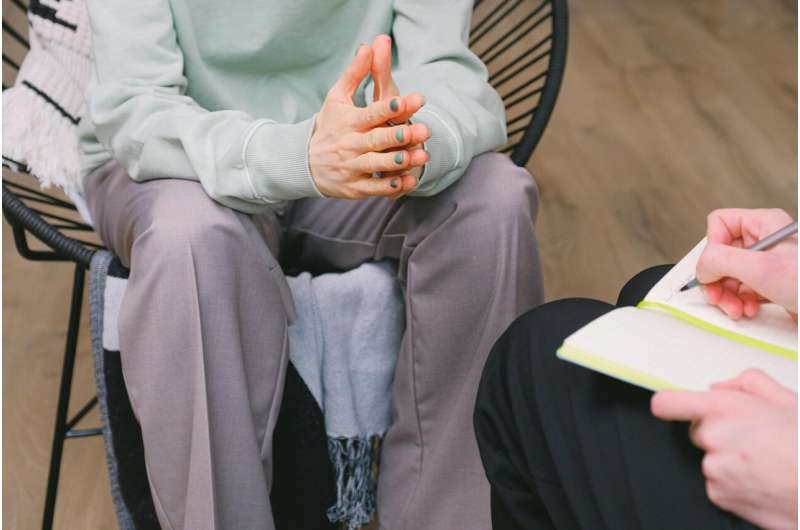This article has been reviewed according to Science X's editorial process and policies. Editors have highlighted the following attributes while ensuring the content's credibility:
fact-checked
peer-reviewed publication
trusted source
proofread
Study: Women veterans at higher risk for repeat suicide attempts

In a new study, Oregon Health & Science University researchers find that women veterans who had recently attempted suicide were more likely than men to feel social rejection and betrayed by military institutions. They also reported feeling less independent and compassionate toward themselves.
The findings, recently published in the Journal of Affective Disorders, suggest that women veterans may be at higher risk of repeat suicide attempts.
It's the first longitudinal—meaning following individuals over time—national study aimed at understanding how psychosocial symptoms change over time among veterans who recently attempted suicide; it's also the first to specifically focus on differences between genders in the risk of suicidal thoughts and behaviors.
"Historically, a lot of the research done on veterans in suicide prevention have enrolled samples that are predominantly men, and that's partly an artifact of the fact that the veteran population is predominantly men," said lead author Lauren Denneson, Ph.D., M.S., professor of psychiatry in the OHSU School of Medicine and associate director of the Center to Improve Veteran Involvement in Care at the VA Portland Health Care System.
The research team enlisted female veterans who had a documented nonfatal suicide attempt within six months prior to the survey, along with a carefully selected group of male veterans for comparison. Surveys were administered to 968 veterans at the start of the study, after six months, and then again at 12 months.
The surveys evaluated psychological factors, the severity of suicidal thoughts, and actual suicidal behavior. Administrative data from health care records tracked outcomes—including suicide attempts—over the one-year follow-up period.
They examined suicide risk factors like psychological distress, self-compassion, perceived social rejection, well-being and institutional betrayal. Over the one-year period, women veterans consistently reported experiencing more social rejection and institutional betrayal, and lower levels of autonomy and self-compassion compared with men.
The Centers for Disease Control and Prevention reports that women in the general population attempt suicide more often than men. Although men have higher rates of suicide, the suicide rate among women increased twice as much as among men from 2021 to 2022. Denneson also noted that women are increasingly using firearms in suicide attempts, raising the risk of fatal outcomes.
"A lot of what we're seeing likely goes back to women's experiences in society," Denneson said. "For example, in studies of depression, women have higher rates of depression because of harmful relationship experiences and lower power in society.
"In addition," she continued, "across all our qualitative and quantitative data, women veterans did not receive as much social support as men. Men reported they had spouses, children, neighbors rallying around them in a way that women didn't. In fact, when women tried to seek social support from a spouse, family member or friend, frequently those people were not only not supportive, but retraumatized them."
Denneson said their findings speak to the need to bolster existing therapies to improve self-compassion and address healthy relationships, as well as developing new interventions that help women veterans in these areas.
"We shouldn't limit ourselves to only current therapies," she said. "We need creative solutions to address these concerns and support our women veterans."
In addition to Denneson, the following authors also contributed to this study: Derek J. Smolenski, Ph.D., M.P.H., Psychological Health Center of Excellence, Defense Health Agency; Katie L. McDonald, B.S. and Sarah Shull, Ph.D., Center to Improve Veteran Involvement in Care; Claire A. Hoffmire, Ph.D., Department of Veterans Affairs, Rocky Mountain MIRECC; Peter C. Britton, Ph.D., Department of Veteran Affairs, Canandaigua, NY, and Kathleen F. Carlson, Ph.D., M.S., and Steven K. Dobscha, M.D., both with OHSU.
More information: Lauren M. Denneson et al, Gender differences in risk and resilience for suicidal thoughts and behaviors: A national longitudinal survey study of United States veterans with a recent suicide attempt, Journal of Affective Disorders (2024). DOI: 10.1016/j.jad.2024.05.133




















